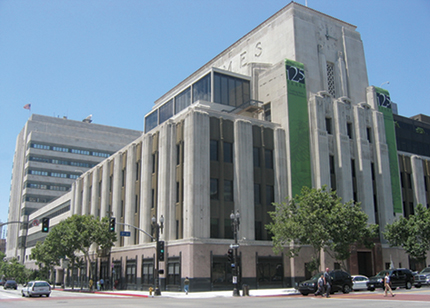 Although the Los Angeles Times hasn’t made a formal announcement, four former editors of its esteemed book review section have protested the paper’s decision to eliminate it and move book reviews to the paper’s Calendar section. Their letter to the newspaper reads in part:
Although the Los Angeles Times hasn’t made a formal announcement, four former editors of its esteemed book review section have protested the paper’s decision to eliminate it and move book reviews to the paper’s Calendar section. Their letter to the newspaper reads in part:
Angelenos in growing number are already choosing to cancel their subscriptions to the Sunday Times. The elimination of the Book Review, a philistine blunder that insults the cultural ambition of the city and the region, will only accelerate this process and further wound the long-term fiscal health of the newspaper.
I don’t live in LA nor am I a regular reader of the LA Times, so I’m in no position to judge how important to the LA basin’s literary culture its book section has been. But I suspect it’s considerable, at the very least as an important link in the book business chain and in championing the writers of the region. I know the Tribune Company, which owns the paper, is in a severe cost-cutting mode across its many papers — spend a week glancing at Romenesko’s newspaper news and gossip blog on Poynteronline if you want to find out the gory details in Baltimore, Chicago and various other newspaper points in the Tribune domain. No doubt the book section doesn’t attract lots of ads, though I suspect its readership numbers are substantial. But it does speak to seriousness of purpose: How intellectually rigorous the newspaper is.
The LA Times has been a VERY ambitious paper, a very smart paper, in the recent past. It has thought of itself as more than Weird Tales from the City of Angels or something like that. (Though I admit I would read Weird Tales from the City of Angels religiously if it existed and was written with the intelligence of the LA Times!) Or Hollywood Gossip You Can’t Use. (Ditto!) Newspapers across the country are slouching in such directions as we speak. I just spent a week in Boulder, Colo., home of the Daily Camera, once a great small newspaper, now something that reads a lot like local TV news. The existence of a book section doesn’t guarantee rigor in each of a newspaper’s stories, but it does imply that the newspaper is aware of its place in the spectrum of reading. That it grants that deeper, more profound reading experiences exist and that it can play a role 1) in letting its readers know which ones those might be and 2) by extracting some of the best ideas in those books and sending them spinning into the culture.
My argument with the way newspapers deal with books is that they are far more assiduous about #1 than #2. And if books permeated a newspaper’s various sections, then the need for a book section would be lessened. (On the other hand, in that case you’d really want to have one.) But that’s a subject for another post in the distant future. We will close simply by agreeing with the former book review editors: The Times has made a mistake; it has sent the wrong signal; it has suggested that the newspaper is “dumbing down”; and at this moment in its history that’s exactly the wrong signal to send.